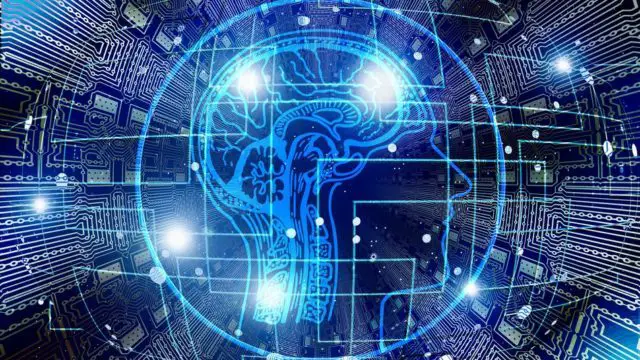UN Secretary General Antonio Guterres called on Thursday for a “united, sustainable and global” response to the risks arising from the rise of artificial intelligence (AI) at the first summit on this technology, which began this past Wednesday in the United Kingdom.
“AI governance principles must be based on the Charter of the United Nations and the Universal Declaration of Human Rights,” highlighted Antonio Guterres at this event in Bletchey Park, near London.
Guterres participated in the summit with the president of the European Commission, Ursula von der Leyen; US Vice President Kamala Harris and Italian Prime Minister GiorgiaMeloni.
They were joined by a hundred experts, ministers and businessmen, who examined the dangers caused by the unstoppable rise of this technology, in the emblematic center where the secret Nazi codes were deciphered during the Second World War.
“Safe” development of AI
The United States, China, the European Union (EU), along with around twenty countries, including Brazil and Chile, signed a Bletchley Declaration for a “safe” development of intelligence, at the start of the meeting, for artificial intelligence (AI) and “agreed on shared responsibility” of its risks.
“The balance is tilting in favor of Humanity, because we have the political will and the capacity to control this technology, ensuring its long-term benefits,” stressed the British Prime Minister, Rishi Sunak, at the closing of the event.
Citing physicist Stephen Hawking – who believed that AI could be “the best or the worst thing that can happen to humanity” – Sunak expressed his conviction that “it can be for the better”, if collaboration continues.
“Act very very quickly”
On the second day of the summit, Sunak hosted political leaders and technology bosses at Bletchley Park.British Foreign Secretary James Cleverly saidthere was no time to lose in coordinating a global response.
“We must advance at a pace that corresponds to that of technological evolution, we have no other choice,” he said. “And what we see is that there is a global will, both at the government level and in the business world, to act very very quickly.”

Risks posed by AI
In a smaller format, with “a small group of senior representatives from like-minded governments,” such as the United States, France and Japan, the leaders were to discuss, the risks posed by AI to national security, according to Downing Street.China, whose eventual presence caused a stir due to geopolitical tensions and fears of technological espionage, was not invited.
US Vice President Kamala Harris will emphasize her country’s efforts to “establish standards and tools to distinguish authentic digital content produced by the government from content generated or manipulated by AI,” the White House said.
Faced with upcoming electoral events such as the US presidential elections (in November 2024) or the British legislative elections (which should be held before January 2025), AI raises fears of an increase in false content on the internet, with perfected montages (“deepfake”). and increasingly credible.
Generative AIs, capable of producing text, sounds or images in a matter of seconds, have progressed exponentially in recent years and the next generations of these models will appear in the summer.
They hold great hope for medicine and education, but they could also destabilize society, enable weapons manufacturing or elude human control, warns the British government.
“Threat” to humanity
The United Kingdom, which sometimes seems isolated from the international scene since Brexit, wants to “show the way” on this issue and take the lead in global cooperation on the potential dangers of AI.
Two international summits on AI will take place subsequently, one in South Korea, in six months, and another in France, in a year, said the British Minister of Technology, Michelle Donelan.
A second round table was organized with the CEOs of leading companies in the sector such as OpenAI, Google Deepmind, Microsoft or Meta, as well as with representatives of civil society.Among those attending is billionaire Elon Musk.
This conversation has drawn criticism, as the billionaire has been accused of promoting misinformation on X since he took the reins of the social network a year ago.

